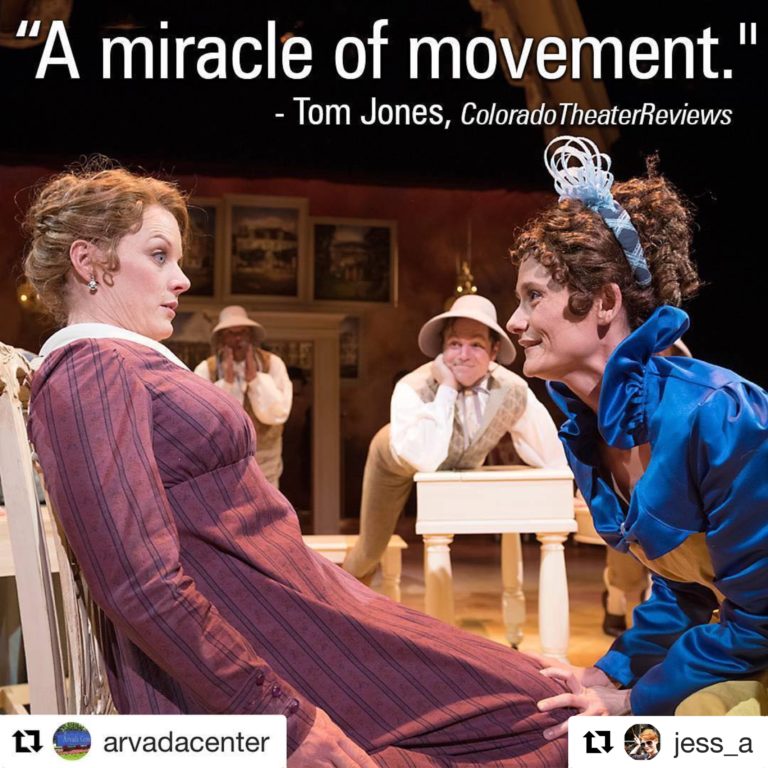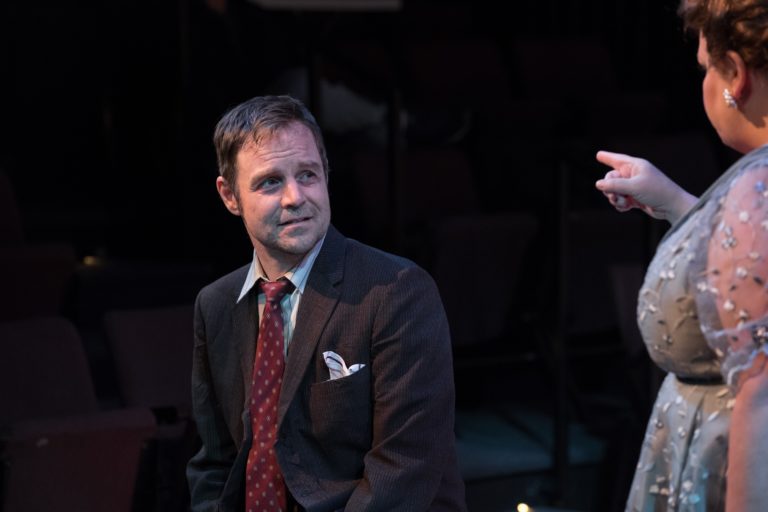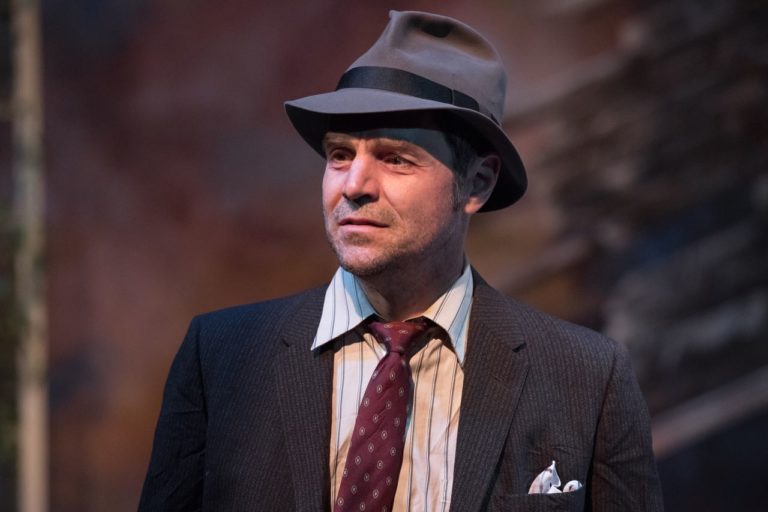Review: You’ll witness magic in “Rashomon”
Truth is, of course, subjective — no matter how much politicians and pundits like to pretend otherwise.
What each of us sees — filtered through our eyes and brains and experience — is, by definition, unique, separate from and in some ways unexplainable to any other person.
In the aftermath of a crime in a forest near the Rashomon gate of ancient Kyoto, three strangers who were gathered under the eaves to escape a rainstorm discuss four very different versions of events as they were related by the people who were there.
Based on stories by Ryunokuke Akutagawa, “Rashomon” was famously first a 1950 film by Akira Kurosawa before it was adapted for the stage in 1959.
The Aurora Fox’s production is visually stunning, reaching back to ancient Japan — not only visually but texturally, such as actual water falling like “rain” and the smell of dust stirred up by the sand that covers most of the stage.
The story that is parsed from various points of view centers on a samurai (Jude Moran) and his wife (Donna Hansen) who, while walking through the forest, are accosted by a bandit (Enzo Sariñana). He overpowers the warrior and rapes his wife in front of him before killing him.
Depending on whose version you believe, the murder might not be a murder; the rape might be a seduction.
The three men gathered at the gate waiting out the rain — a woodcutter (Jack Casperson), a wigmaker (Seth Maisel) and a priest (Peter Trinh) — huddle around a fire and discuss the varying court testimony given by the bandit, the wife and, through a medium, the dead samurai.
Through a series of flashbacks, we get to see the same events played out as told by each. But the twist, credited to Kurosawa, is that instead of using flashbacks to illuminate past events as most films and plays do, in “Rashomon” they are used to muddy the waters and sow doubt.
The other, parallel story is what is revealed about the character of each man at the gate — and about human nature.
With the reluctant intimacy of strangers forced together by circumstance, the three men circle each other warily at first, eventually opening up as they relate their opinions.
Casperson, the woodcutter, is effective as the fretting, troubled conscience of mankind, wracked by doubt.
As the bandit, Sarinana’s perpetual seething grows a bit too one-note by the end; opportunities for more nuance and humor slip away.
Moran, as the samurai, is literally gagged much of the time and thus isn’t given much to work with early on. But when his moment comes, he is perfectly wound up to show a wide range of emotions in a short span.
As the wigmaker, Maisel threatens to steal the show. To be sure, his character, a rather unsavory, cynical trickster, is given the gift of the bulk of the laugh lines. But Maisel himself seems much more comfortable in the skin of this guy than some of his castmates.
In truth, Jen Orf’s brilliant scenic design should be considered a character itself; she not only makes it rain, but also brought in what must be tons of sand covering the rest of the playing area. The smell of dust flying up during the numerous gorgeously staged Geoffrey Kent swordfights harks back to schoolyard tussles and beyond, to something primal and deadly and murderous in our very core.
The dust may obscure the stories we like to believe about ourselves, but we can’t hide from what we really are. As the wigmaker says at the end of the final flashback: “It has the smell of truth about it. Disappointing, isn’t it?”




